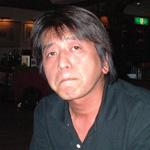Pulse 1
Back to Contents of Issue: December 2003
|
|
|
|
by Terrie Lloyd |
|
 The Pension Problem The Pension Problem
WHILE MOST OF THE attention is focused on the poor state of affairs in Japan's pension system, there is a unique problem for foreigners working in Japan that also needs to be addressed. The way the pension system is structured at the moment, foreigners living in Japan for longer than three years but less than 25 years pay 9 percent of their salary (which must be matched by their employer) into the Japanese pension system, without any way to receive benefit from the contributions when they get older. Not only that, with the exception of just two countries' citizens, foreigners can't use the Japanese contributions when they go back to their home countries.
Like a number of other countries in the world, Japan won't pay out a pension unless you've been paying into the system for at least 25 years. This means that foreigners working for fewer years not only can't collect a pension here in Japan after contributing up to JPY37 million (the top contribution rate), but when they go home, they also can't collect a pension there either. (For example, in Australia, you have to contribute for 25 years in order to receive a pension). Clearly this is very unfair, and may well constitute a basic breach of human rights.
Japan seems very reluctant to allow foreigners to have reciprocal pension arrangements. So far, there are only two countries, Germany and the UK, which have reciprocal pension agreements. The Japanese government probably knows that the approximately 80,000 Westerners in Japan who are typically highly paid are contributing somewhere between JPY100 billion and JPY200 billion a year to the national pension coffers without any associated costs, and thus it is dragging its feet in terms of offering pension agreements with citizens of other countries. For example, in April of 1995, the Canadian and Japanese governments agreed to have working level discussions to introduce a Canada-Japan pension agreement. But today, over nine years later, there is still no substantial progress.
Actually, the Canadian pension case is an interesting one. There are over 1,800 Japanese working in Canada (over 34,000 actually live there), and for each Japanese, the contribution to the Canadian pension system borne by the employer is just CN$1,330 a year. In contrast, a Canadian employer's contribution in Japan is JPY746,000 (at the highest rate), about eight times more. So not only is the current system unfair to foreign individuals, but it punishes companies as well.
In November 1994, the Japanese government introduced a system allowing foreigners to claim up to three years of their pension payments back if they leave the country. But these refunds only apply to the individual. Companies don't qualify for a refund, even though the pension contributions will never be used.
In a Japan Times interview with the Ministry of Health and Welfare, officials claim that since 90 percent of foreigners leave Japan within three years, the refund period was limited. However, unless the Japanese government introduces reciprocal pension agreements with other countries, the 10 percent who stay significantly longer than three years and who are making contributions to the country are being doubly punished -- unable to collect a pension either in Japan or their own country, and unable to retrieve any of their contributions beyond a mere three years. This situation cries out for reform.
-- Terrie Lloyd
Too Dangerous to Document?
FILMMAKER TATSUYA MORI MAY finally get the wide audience he has sought for his documentaries A and A2. It has been over eight years since the 1995 sarin nerve gas attacks on the Tokyo subway system killed 12 people and injured 5,000 others. Recent court appearances by Aum Shinrikyo founder Shoko Asahara have been a brutal reminder of the horrors. And if rental volume at Tsutaya, one of Japan's largest video rental shops, is any indication, Japanese society is ready to begin reexamining its subsequent dealings with Aum Shinrikyo members.
Mori's films provide an inside view of the daily lives of Aum members, their interactions with the Japanese media, the police, angry "not-in-my-backyard" neighbors and right-wing faction members. Although the video versions are only available in Japanese, the DVDs will be released with English subtitles.
The first film, A, was released in 1998, but has gone largely unseen by Japanese audiences.
Although Tsutaya rents A and A2 (recently ranked number two in Tsutaya's new item rental ranking), the rental chain store refuses to sell them, Mori says, because it fears being held liable if viewers join the cult as a result of seeing the video.
Mori claims a high-ranking executive at satellite broadcaster Wowow recently offered to show the films on his network. Mori provided copies of the documentaries for Wowow's screening committee to review. Their reaction was neither one of rejection nor acceptance. Instead, Mori says, the committee said they would pretend they had never even seen the films. In the same way, Japanese society seemed to turn a blind eye to any mention of Aum (now called "Aleph") that doesn't convey it as evil incarnate.
Shortly after the subway attacks, Mori was the only member of the press who requested permission from Aum to film a documentary about the everyday activities of its members. Fuji TV, for whom he was freelancing at the time, demanded footage portraying Aum in an exclusively negative light. When Mori refused, he was fired and continued filming on his own. To many Japanese who have been exposed to years of Aum demonizing by media outlets, the mundane scenes of daily life in the cult are quietly disturbing.
There are also plenty of confrontations and noisy exchanges to capture viewers' attention. (For instance, anyone who believes that a Japanese police officer would never assault a law-abiding citizen will be in for a rude awakening.)
Mori claims that Japanese officials appear more interested in seeing Aum's Shoko Asahara put to death than in administering justice. He notes that Asahara's defense lawyers have not yet had the cult leader psychoanalyzed out of fear that they will be "bashed" for potentially allowing him to elude capital punishment.
Given that Asahara's courtroom demeanor -- which has reportedly included an explanation in English that he was onboard the Starship Enterprise -- could be manufactured in order to mitigate his punishment, an examination would ordinarily be undertaken, Mori says.
A common expression in Japan is deru kugi wa utareru ("the nail that sticks out gets hammered down"). Eight years after Japan tried to use a sledgehammer to pound the Aum nail, Mori's films may convince the country to examine the subsequent damage.
-- Mark McCracken |
|
Note: The function "email this page" is currently not supported for this page.






